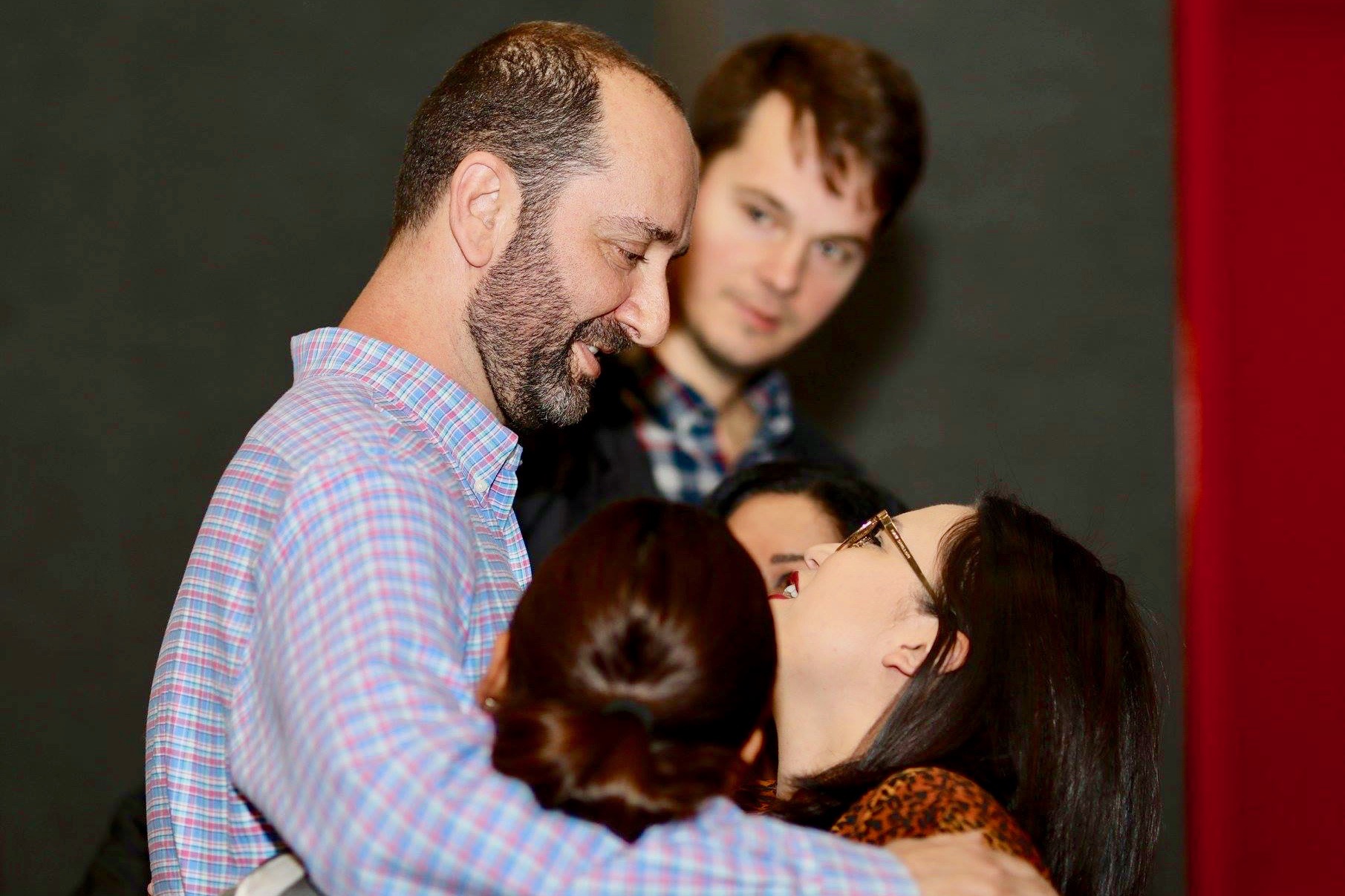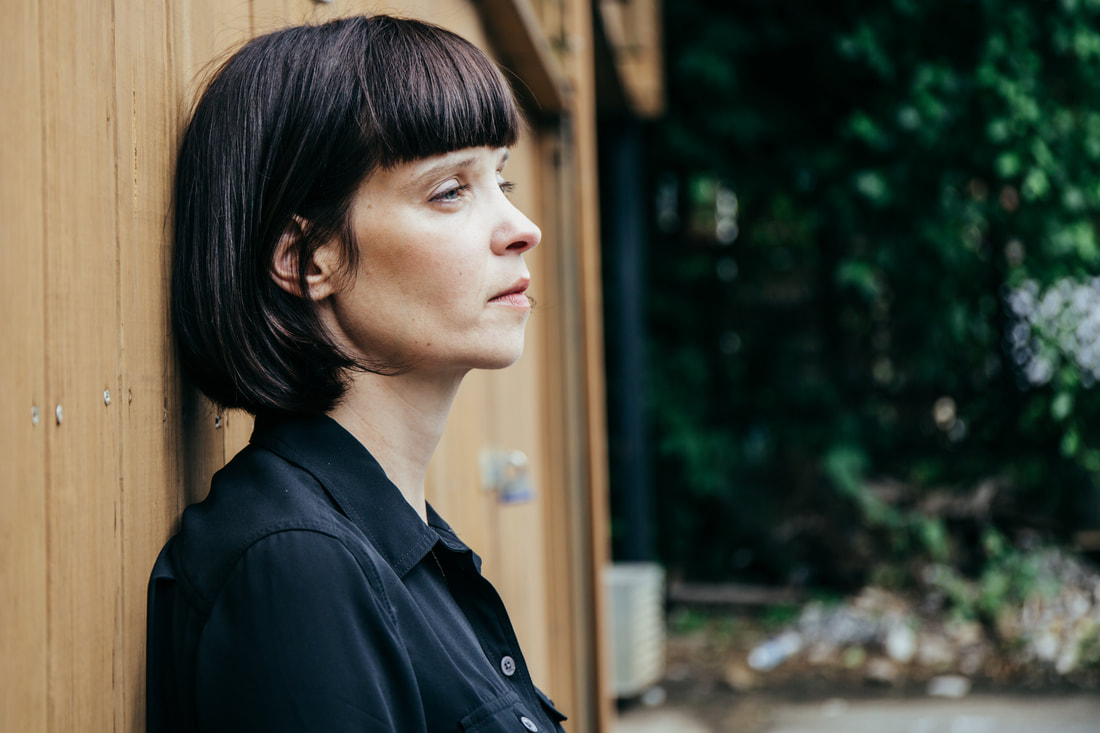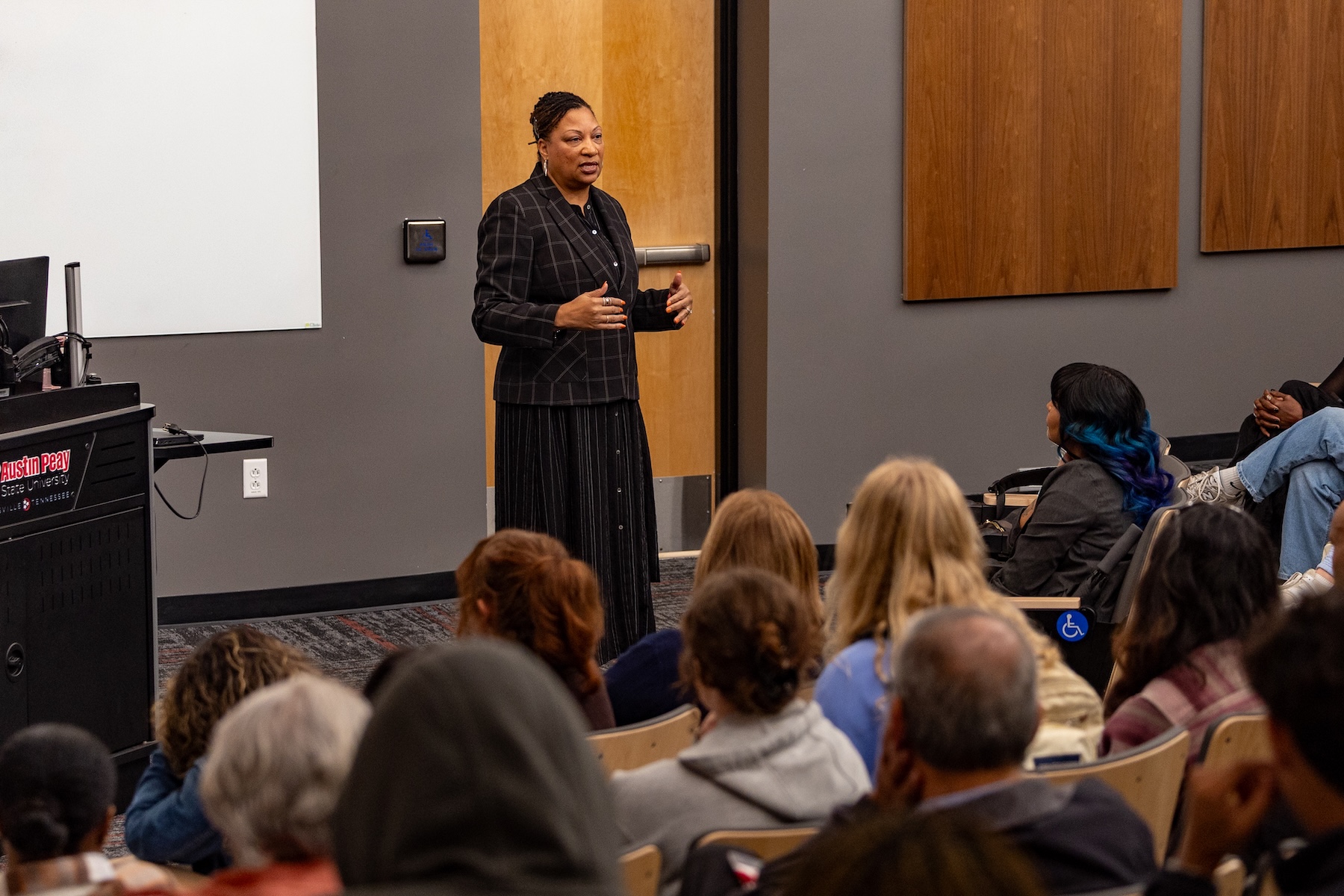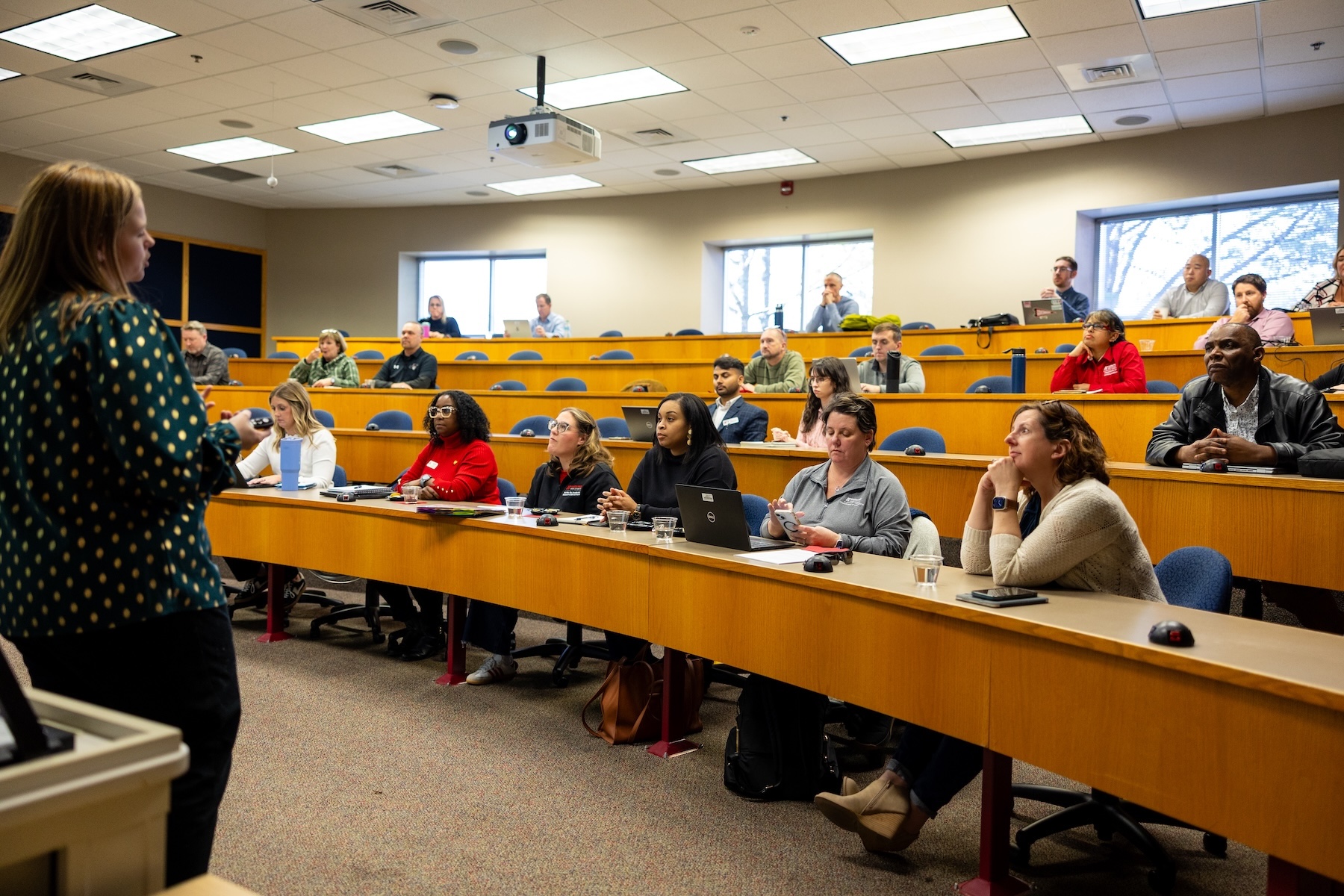LGBTQ-inclusive novelist Bill Konigsberg to read for Austin Peay-hosted event

(Posted Oct. 5, 2020)
Award-winning young adult author Bill Konigsberg will read from his work during an Oct. 14 free virtual event hosted by Austin Peay State University.
“A Zone 3 Press Reading with Bill Konigsberg” is scheduled for 7 p.m. Oct. 14. You can register for the reading by clicking here.
The event will be a webinar with a live question and answer session.
Konigsberg is best known for his LGBTQ-inclusive novels for young readers such as “The Porcupine of Truth,” which won the PEN Center Literary Award and the Stonewall Book Award.
The reading is sponsored by Zone 3 Press and the Center of Excellence for the Creative Arts.
Austin Peay student Kyle Watts interviewed Konigsberg in March about what it means to be an author, his early career as a sportswriter and the growth of inclusivity and LGBTQ acceptance in modern fiction.
For the sake of the audience, what do you write about?
I write young adult fiction, primarily about LGBTQ issues but not exclusively any longer. I’m the author of six novels. Well, the sixth comes out in the fall.
I read that you were a sportswriter before segueing to fiction writing full time. Was there a moment in your professional life that called you to make the change?
I was a sportswriter prior to my fiction career, yes. The moment I realized I wanted to write fiction and not be a sportswriter happened in about 2001 while working at ESPN. I liked being there, but I felt that my talents weren’t being used as a writer and editor for ESPN.com. In short, I felt like I had more to offer, and that I had a story to tell, and I began to worry that I was moving into my 30s and that my dream of being a fiction writer was going to die if I didn’t make a move. So, I quit my job and went into the MFA program in creative writing at Arizona State University. My hope was that at the very least, my two years there would afford me time to write a few books, even if publishing a novel was a bit pie-in-the-sky. I mean, everyone wants to write books, but few get the opportunity to make a living at it. That “very least” did happen, but a lot more happened, too. I really found a renewed passion for the craft of writing fiction, and I began to sense that my future lay in writing novels. I gained confidence and improved my writing, I guess I’m saying.
I can tell you’re a massive baseball fan. Has that passion found its way into any of your work?
I am a huge baseball and football fan. In some ways those passions have found their way into my books. My first novel, “Out of the Pocket,” was about a high school football player who is outed against his will. At the time, back in the early 2000s, I felt like I was perhaps one of the only people out there with the combination of the sensitivity to write a great coming-of-age story while also doing justice to the football scenes. I think, in fact, that was true. That novel won the Lambda Literary Award. I have included sports in a bunch of my other novels, but none has been a “sports” novel since that one.
What do you think about more and more athletes coming out?
So, one interesting thing about me is that I was the first male to be out as gay while working for the ESPN network. I wrote an article while there, back in 2001, called “Sports World Still a Struggle for Gays.” That essay appeared on the front page of ESPN.com, and it served as my public coming out. It won a GLAAD Media Award and led me to become an outspoken advocate for LGBTQ athletes. In fact, when I went to work for a few years at the Associated Press in 2005, after getting my degree, I wound up being their go-to person for issues related to gays in sports. As for what I think? I think it’s amazing. At one time, it was exciting if there was one coming out story a year. I was a big story. Now, nearly 20 years later, there seems to be one every day, and a gay sportswriter is not news in the least. Amazing!
You speak a lot about being a gay person in sports. What has navigating through that world taught you?
It has taught me to love myself and to trust myself. Before coming out, I had so many doubts about being who I was – a gay person who loved sports and wrote about them – in the light. I doubted myself all the time. And somehow, through intuition and luck, mostly, I’ve carved this interesting path. That has really given me a belief that I can do things, and that I am a worthy person. It’s hard to explain but coming out in the 1980s can really do a number on one’s self-esteem and self-worth. Navigating this journey, in the long run, has saved me.
When did you know that you were gay?
I figured that out when I was about 13. At the time, I barely knew what gay was, beyond the stereotypes. In 1984, there were no gay characters on TV. Gay issues were not discussed generally. I had no sense of what it all meant, and I found it horrifying and depressing and I wanted to do anything I could to fix it, to change it. It took me a long time to come to terms with being gay, and that it was important to be honest about who I was. Well, I say a long time, but I guess I came out around 17 or 18. It felt like forever. And really, the process of truly accepting myself and celebrating who I am took decades, not years.
What challenges have you faced? In what ways has it been liberating?
It challenged absolutely everything I knew to be true. It challenged my place in my family. My sense that I was worthy of living and being happy. And because it challenged me in those elemental ways, the ways in which it has been liberating have been equally extreme. It is amazing to have been on a journey where I really didn’t have that many role models. Where I had to figure out what it meant to be a functioning, healthy gay man amidst so much negativity, hatred, and, frankly, dysfunction. To have gotten to a place where I am truly happy in my own skin feels incredible, and yes, utterly liberating.
Is letting children know from an early age that there is nothing wrong with being gay, lesbian, bisexual, trans, etc., what called you to fill that void in young adult literature?
Yes, but really what called me was having grown up without books that represented me. I didn’t read a book with a gay character in it until I was 17, and until then, I truly felt I was alone in my plight. Then, as I found the few books that were out there at the time, the world opened up for me. I wanted to pay forward that gift that was given to me by authors like Brian McNaught and Ed White and Jeanette Winterson.
What was the most challenging thing you have faced so far in your professional career?
I’d have to say two things: the decision to come out while at ESPN, as the higher-ups there warned me that me and my family could receive death threats (we didn’t). And then, once I moved into writing fiction, it was the cancellation of my second book contract. There was a change at my publishing house, Penguin, and I wound up paired with an editor who didn’t like my book. She also didn’t like the book I wrote as a substitute, “Openly Straight.” At that time, having a canceled contract and just one book that didn’t sell that well, I feared my career was over. It took a lot to put my head down, get to work, and just focus on the writing.
What do you think the writer’s “place” is in society?
Hmm. I dunno. It’s a good question but I can’t say I really think like that. I guess it is our job to explore meaning, in terms of the human condition and what people do.
Young adults are living in an increasingly inclusive society and fiction is becoming more inclusive too. Pretty soon, a transgender main character will become the norm. One day we won’t even think about the fact that a main character is LGBTQ, the same as we don’t question a love story between a man and a woman. What has it been like to see this transition?
It’s been wild. In the 12 years since my first book came out, everything has changed massively. That first year, when my debut won the Lambda, there were about 32 books the judges chose from. Today, that number is something like 300. At the time the debut came out, it was considered a niche title, and Penguin even publishing it was a big deal. Twelve years later, it seems as though the publishing houses consider cisgender gay white men to be a little passé! It’s fascinating to watch. In reality, I’m happy to pass the torch to younger writers from different backgrounds. There are more stories to be told, more people who have been marginalized and erased to represent. And at the same time, I think there will always be a place for people like me, too.
As a voracious reader and writer, I always love to ask other writers about their process. Can you go into yours a little bit?
It’s a slow process. I am a painter, not a plotter, and I tend to go in not knowing anything and figuring it out as I go. But I also consider a plot important, and as I go along, and as I refine what the story is about and who the characters are, I definitely do plot. I think about what might happen, so it’s not as though it’s the norm to find myself writing Chapter 28 and BAM! Something completely unexpected happens. Usually by then, I know the big stuff, and there are fun little surprises along the way.
Do you feel your work as a reporter helped your fiction writing?
I think working for the AP helped me a lot. It helped me be brief and move away from flowery, overindulgent prose. Sometimes, anyway.
What are some of your influences, written or otherwise?
I’ve been influenced by many, many writers. Armistead Maupin and Toni Morrison, as different as they are, are probably my two biggest literary influences. I love Maupin’s heart, and Morrison’s passion.
Have you considered venturing out of the young adult space?
Yes. I am strongly considering, when I finish my current manuscript – which will be my seventh book – moving into adult literature. At least for a while. It’s hard to leave a genre when I’ve amassed an audience, but the truth is that one of the most important things for me is to continue to challenge myself with each new book. I think writing a non-YA would be a great challenge for me, one that I would relish.
Where is the dividing line between social commentary and entertainment in stories? Or do you believe the two can never fully be separated?
I never really focus on social commentary as such. I guess in reality, my novels do comment on life, particularly what it is like to be young and LGBTQ, but I don’t approach a novel that way. Or I don’t since the first one. I focus on writing a good book, one that would entertain and enthrall me as a reader. I get a little annoyed sometimes when readers who love my books focus only on what they’re about. I get it, that these books help people. But at this point in my career, I wish to be seen as a writer first, and an advocate second.
Do you think your books being labeled as “LGBTQ Literature” has been an annoying way to pack your literature into a neat little label?
Yes, at times. I think my books are about a lot more than the LGBTQ experience, but fortunately, in the last few years, that label has ceased to define me as much. More and more, I have straight readers and I love that. And yes, I do look forward to the day that labels can be a thing of the past. We aren’t there yet, but we’re moving in that direction!
To learn more
- For more about Bill Konigsberg, visit www.billkonigsberg.com.
- For more about Austin Peay’s Center of Excellence for the Creative Arts, go to www.apsu.edu/ceca.
- For more about the Department of Languages and Literature, visit www.apsu.edu/langlit.
News Feed
View All News
Austin Peay State University's Zone 3 Press, with support from the Center of Excellence for the Creative Arts, is hosting NEA Creative Writing Fellowship recipient and award-winning writer Toni Jensen for a free public reading and book signing at 7 p.m. on Thursday, Feb. 19, in Art + Design Room 120.
Read More
David Hogan of Ribbon Communications and David "Buck" Dellinger of the Clarksville-Montgomery County Economic Development Council (EDC) will share their real-world perspectives on leadership, innovation, and career development during this semester's speaker series.
Read More
Title III grant funding recently allowed 16 faculty members from across campus to participate in the Career Readiness Academy, an extended workshop series focused on labor market tools, curriculum development, and National Association of Colleges and Employers (NACE) competencies.
Read More